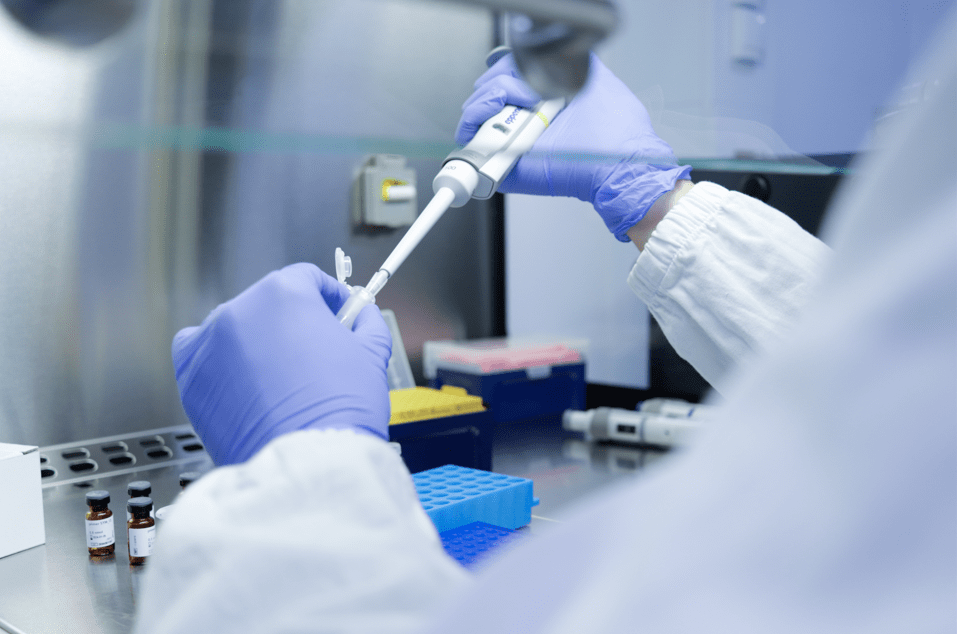*These tests require prior medical prescription.
References
1. National Institute of Diabetes and Digestive and Kidney Disease. Your Digestive System & How it Works [Internet]. [cited 2024 May 24]. Available from: https://www.niddk.nih.gov/health-information/digestive-diseases/digestive-system-how-it-works
2. Appleton J. The Gut-Brain Axis: Influence of Microbiota on Mood and Mental Health. Integr Med Encinitas Calif. 2018 Aug;17(4):28–32.
3. Hou K, Wu ZX, Chen XY, Wang JQ, Zhang D, Xiao C, et al. Microbiota in health and diseases. Signal Transduct Target Ther. 2022 Apr 23;7(1):135.
4. Winter G, Hart RA, Charlesworth RPG, Sharpley CF. Gut microbiome and depression: what we know and what we need to know. Rev Neurosci. 2018 Aug 28;29(6):629–43.
5. American College of Gastroenterology. Common Gastrointestinal (GI) Symptoms [Internet]. [cited 2024 May 24]. Available from: https://gi.org/topics/common-gi-symptoms/
6. The Lancet Gastroenterology & Hepatology. Tackling the burden of digestive disorders in Europe. Lancet Gastroenterol Hepatol. 2023 Feb;8(2):95.
7. Tielemans MM, Jaspers Focks J, Van Rossum LGM, Eikendal T, Jansen JBMJ, Laheij RJF, et al. Gastrointestinal Symptoms are Still Prevalent and Negatively Impact Health-Related Quality of Life: A Large Cross-Sectional Population Based Study in The Netherlands. Baradaran HR, editor. PLoS ONE. 2013 Jul 29;8(7):e69876.
8. Black CJ, Drossman DA, Talley NJ, Ruddy J, Ford AC. Functional gastrointestinal disorders: advances in understanding and management. The Lancet. 2020 Nov;396(10263):1664–74.
9. Thursby E, Juge N. Introduction to the human gut microbiota. Biochem J. 2017 Jun 1;474(11):1823–36.
10. Jandhyala SM, Talukdar R, Subramanyam C, Vuyyuru H, Sasikala M, Nageshwar Reddy D. Role of the normal gut microbiota. World J Gastroenterol. 2015 Aug 7;21(29):8787–803.
11. Morais LH, Schreiber HL, Mazmanian SK. The gut microbiota–brain axis in behaviour and brain disorders. Nat Rev Microbiol. 2021 Apr;19(4):241–55.
12. Petersen C, Round JL. Defining dysbiosis and its influence on host immunity and disease. Cell Microbiol. 2014 Jul;16(7):1024–33.
13. DeGruttola AK, Low D, Mizoguchi A, Mizoguchi E. Current Understanding of Dysbiosis in Disease in Human and Animal Models. Inflamm Bowel Dis. 2016 May;22(5):1137–50.
14. Singh R, Zogg H, Wei L, Bartlett A, Ghoshal UC, Rajender S, et al. Gut Microbial Dysbiosis in the Pathogenesis of Gastrointestinal Dysmotility and Metabolic Disorders. J Neurogastroenterol Motil. 2021 Jan 30;27(1):19–34.
15. Sadeghpour Heravi F. Gut Microbiota and Autoimmune Diseases: Mechanisms, Treatment, Challenges, and Future Recommendations. Curr Clin Microbiol Rep. 2024 Jan 16;11(1):18–33.
16. Pascal M, Perez-Gordo M, Caballero T, Escribese MM, Lopez Longo MN, Luengo O, et al. Microbiome and Allergic Diseases. Front Immunol. 2018;9:1584.
17. Anand N, Gorantla VR, Chidambaram SB. The Role of Gut Dysbiosis in the Pathophysiology of Neuropsychiatric Disorders. Cells. 2022 Dec 23;12(1):54.
18. Bandopadhyay P, Ganguly D. Gut dysbiosis and metabolic diseases. In: Progress in Molecular Biology and Translational Science [Internet]. Elsevier; 2022 [cited 2024 May 24]. p. 153–74. Available from: https://linkinghub.elsevier.com/retrieve/pii/S187711732200093X
19. Santana PT, Rosas SLB, Ribeiro BE, Marinho Y, de Souza HSP. Dysbiosis in Inflammatory Bowel Disease: Pathogenic Role and Potential Therapeutic Targets. Int J Mol Sci. 2022 Mar 23;23(7):3464.
20. Kim GH, Lee K, Shim JO. Gut Bacterial Dysbiosis in Irritable Bowel Syndrome: a Case-Control Study and a Cross-Cohort Analysis Using Publicly Available Data Sets. Jacobs JL, editor. Microbiol Spectr. 2023 Feb 14;11(1):e02125-22.
21. Breton J, Galmiche M, Déchelotte P. Dysbiotic Gut Bacteria in Obesity: An Overview of the Metabolic Mechanisms and Therapeutic Perspectives of Next-Generation Probiotics. Microorganisms. 2022 Feb 16;10(2):452.
22. Guo X, Huang C, Xu J, Xu H, Liu L, Zhao H, et al. Gut Microbiota Is a Potential Biomarker in Inflammatory Bowel Disease. Front Nutr. 2021;8:818902.
23. Zwezerijnen-Jiwa FH, Sivov H, Paizs P, Zafeiropoulou K, Kinross J. A systematic review of microbiome-derived biomarkers for early colorectal cancer detection. Neoplasia N Y N. 2023 Feb;36:100868.
24. Manor O, Dai CL, Kornilov SA, Smith B, Price ND, Lovejoy JC, et al. Health and disease markers correlate with gut microbiome composition across thousands of people. Nat Commun. 2020 Oct 15;11(1):5206.




